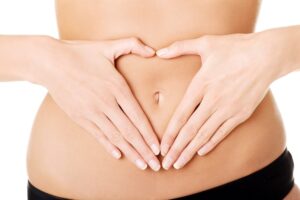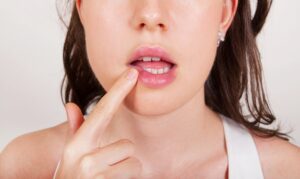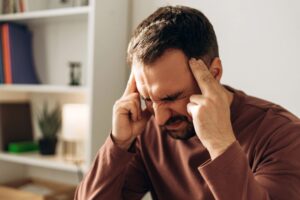- Australia Wide
- Phone Support 1300 003 310
- Email Support support@instantconsult.com.au
Why You May Need to Fast Before a Blood Test

Fasting before a blood test might seem like a small inconvenience—but it plays a big role in ensuring accurate results. Even something as minor as a morning coffee or a small snack can interfere with certain test readings, leading to potential misdiagnosis or the need for retesting.
By abstaining from food and drink for a specific period, you’re helping your doctor get a true picture of your health. It’s a simple yet essential step in the medical testing process.
The key contributor to this condition is a hormone called dihydrotestosterone (DHT), which affects genetically susceptible hair follicles, especially on the scalp. If baldness runs in your family, particularly on your father’s side, your likelihood of experiencing it increases significantly.
Types of Blood Tests That Require Fasting
Not all blood tests require fasting, but for certain tests, eating or drinking beforehand can interfere with the results. Here are some of the most common blood tests that do require you to fast:
Blood Glucose Test
This test checks how well your body manages blood sugar, which is crucial for diagnosing and managing diabetes. You’ll need to fast for at least 8 hours.
Lipid Panel
Set aside 9 to 12 hours for fasting before this test. This is necessary to accurately measure your cholesterol levels, including HDL and LDL.
Liver Function Tests
These require a fasting period of 10 to 12 hours. They help check the health of your liver by looking at enzymes and proteins that liver cells release.
Kidney Function Panel
Plan to fast for 8 to 12 hours. This panel gives insights into how well your kidneys are filtering waste and maintaining electrolyte balance.
Iron Tests
A 12-hour fast is needed here. It measures how much iron is in your blood, helping to diagnose conditions like anaemia or iron overload.
Tests like complete blood count (CBC), thyroid function, PSA, and STI screens usually do not require fasting. However, always check with your doctor or pathology collection centre before your appointment—guidelines can vary depending on the lab or the specifics of your case.
How Long Should You Fast?
Most fasting blood tests require 8 to 12 hours before your appointment. This means no eating or drinking anything other than water. It’s crucial for getting accurate results, especially for lipid profile, glucose, and cholesterol tests.
However, this will depend on the type of blood work you’re having. Some tests don’t require a fasting period or any type of preparation beforehand.
You can also ask the staff at the pathology collection centre if you’re not sure you’ve fasted long enough. If fasting is necessary for your blood test, they’ll also ask you about it before blood collection is done.
Remember, sticking to your fasting period ensures your test results reflect your true health status. If you have any questions, it’s best to reach out to your healthcare provider for advice tailored to your needs.
Why Fasting Matters
Fasting before a blood test isn’t just about following instructions—it directly affects your test’s accuracy.
Stabilises Blood Components
Fasting helps stabilise levels of enzymes and proteins that could be altered by food intake.
Reduces Variability
Eating can introduce variability in blood components like triglycerides and HDL (high-density lipoprotein), making it harder to interpret test results.
Improves Diagnostic Accuracy
Accurate results give healthcare professionals a clear picture of your health status. This, in turn, leads to more accurate medical advice and treatment plans.
Safety Reasons
Tests like endoscopy and biopsies of internal organs are typically done under general anaesthesia. Fasting lowers your risk of serious complications.
What Can I Eat or Drink While Fasting?
When fasting for a blood test, the goal is to avoid any foods or drinks that could skew your test results. That means your food and drink options are limited.
You cannot eat any solid or liquid food, especially those that can affect your blood glucose levels. This includes meals, snacks, and any type of food that needs to be chewed or swallowed.
As for beverages, avoid all drinks except water. That means no coffee, tea, soda, juice, and especially alcohol. Even smoking and chewing gum is not allowed. Nicotine in cigarettes can affect some test results, while most gums contain sugars or artificial sweeteners. So, it’s best to avoid them altogether.
In short, the only thing you can have during your fasting period is water. In fact, drinking water is encouraged as it helps keep you hydrated and can make it easier to draw your blood. If you feel hungry, just drink plenty of water and make sure to get enough sleep, as lack of sleep can increase hunger and appetite.
What If I Have Diabetes?
Fasting for a blood test when you have diabetes needs a bit of extra care. Here are some precautions you should take:
- – Talk to your doctor: Before fasting, it’s crucial to discuss it with your healthcare provider. They can adjust your medication or insulin to match the fasting requirements.
- – Monitor your blood sugar: Keep a close eye on your levels before, during, and after the fast. This helps prevent any lows or highs.
- – Stay hydrated: Drinking water is okay and encouraged. It won’t affect your blood sugar levels and keeps you hydrated.
- – Have a plan for lows: If your blood sugar drops, treat it as you normally would, even if it means breaking the fast. Your safety comes first.
Final Thoughts
Fasting before a blood test might feel inconvenient, but it plays a vital role in giving your doctor the clearest picture of your health. When in doubt, check with your healthcare provider or pathology lab for specific instructions. Stick to your fasting period, drink water, and you’ll help ensure your results are accurate—and your care is on track.



